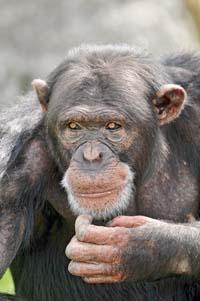Clarifying the genetic basis of speaking ability

The FOXP2 gene is increasingly related to the ability to speak
The FOXP2 gene acts differently in humans and chimpanzees, and some of these differences may make us unable to speak or chimpanzees. Some neurogenetics from the University of California have reached this conclusion by analyzing the gene maps that regulate the FOXP2 gene in humans and chimpanzees.
In 2001, scientists found that the FOXP2 gene has a certain relationship with the ability to speak. Individuals who have certain mutations in that gene have no ability to speak. However, it cannot be said to be a gene of speech. The FOXP2 gene encodes a transcription factor that activates or stops the expression of other genes.
In humans and chimpanzees the proteins provided by the FOXP2 gene are the same, except in two amino acids. Based on this, experts wanted to see which genes are activated and silenced in both cases. For this purpose, the two versions of the FOXP2 gene were introduced in human brain cells.
Thus, it has been proven that 116 different geniuses are affected by the FOXP2 genes of chimpanzees and humans. Some of these genes are closely related to the ability to speak. For example, they have highlighted exposure to the FOXP2 gene of some of the genes involved in the formation of the brain and face and some related to the development of the central nervous system.





